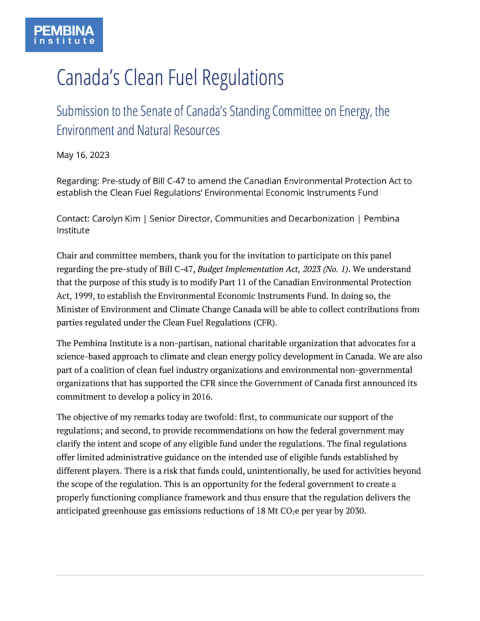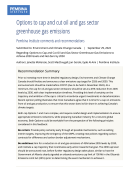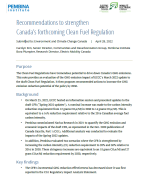On May 16, 2023 , the Pembina Institute was invited to be a witness before the Senate Committee on the Clean Fuel Regulations. Under consideration was an amendment in Bill C-47, Budget Implementation Act, 2023 (No. 1), to modify provisions in the Canadian Environmental Protection Act that would allow for the establishment of an Environmental Economic Instruments Fund. The amendment permits the Minister of Environment and Climate Change Canada to set up a compliance fund to collect contributions from producers and suppliers regulated under the Clean Fuel Regulations (CFR).
In addition to establishing a federal compliance fund, the Minister may also authorize the establishment of similar funds administered by provincial governments or Canadian non-profit entities. However, the CFR is vague on the disbursement criteria leaving the use of funds open to the risk that they could unintentionally be used for activities outside the scope of the CFR.
The Pembina Institute strongly supports the CFR and, to assist in providing greater clarity, recommends to the federal government the following, as conveyed to the Senate Committee:
- Provide overarching policy direction for eligible funds: The Clean Fuel Regulations offer the flexibility for more than one compliance fund to be established (per s. 113(a), 114 and 117). The federal government should provide greater clarity to ensure that the potential for multiple compliance fund mechanisms do not undermine the environmental integrity of the regulation.
- Establish that the funds be used for near-future emission reductions: Contributions made to the compliance fund must be used to support projects that will achieve a reduction in CO2e emissions in the short term.
- Ensure the compliance fund is the last resort to meet compliance. It must be made clear that an obligated party purchase all available credits pledged to a market-clearing mechanism; if they are still in a non-compliant position, they become eligible to purchase credits from the compliance fund. The fund represents a ceiling on compliance costs that comes into effect only when all other options have been exhausted.
The Clean Fuel Regulations are essential to Canada’s climate plan to meet its enhanced Paris Agreement target to reduce emissions by 40-45% from 2005 levels by 2030 and achieve net-zero emissions by 2050. The anticipated outcome of fully implemented Clean Fuel Regulations is a reduction of 204 Mt CO2e by 2040. Achieving this ambitious goal depends on an effective compliance framework.









